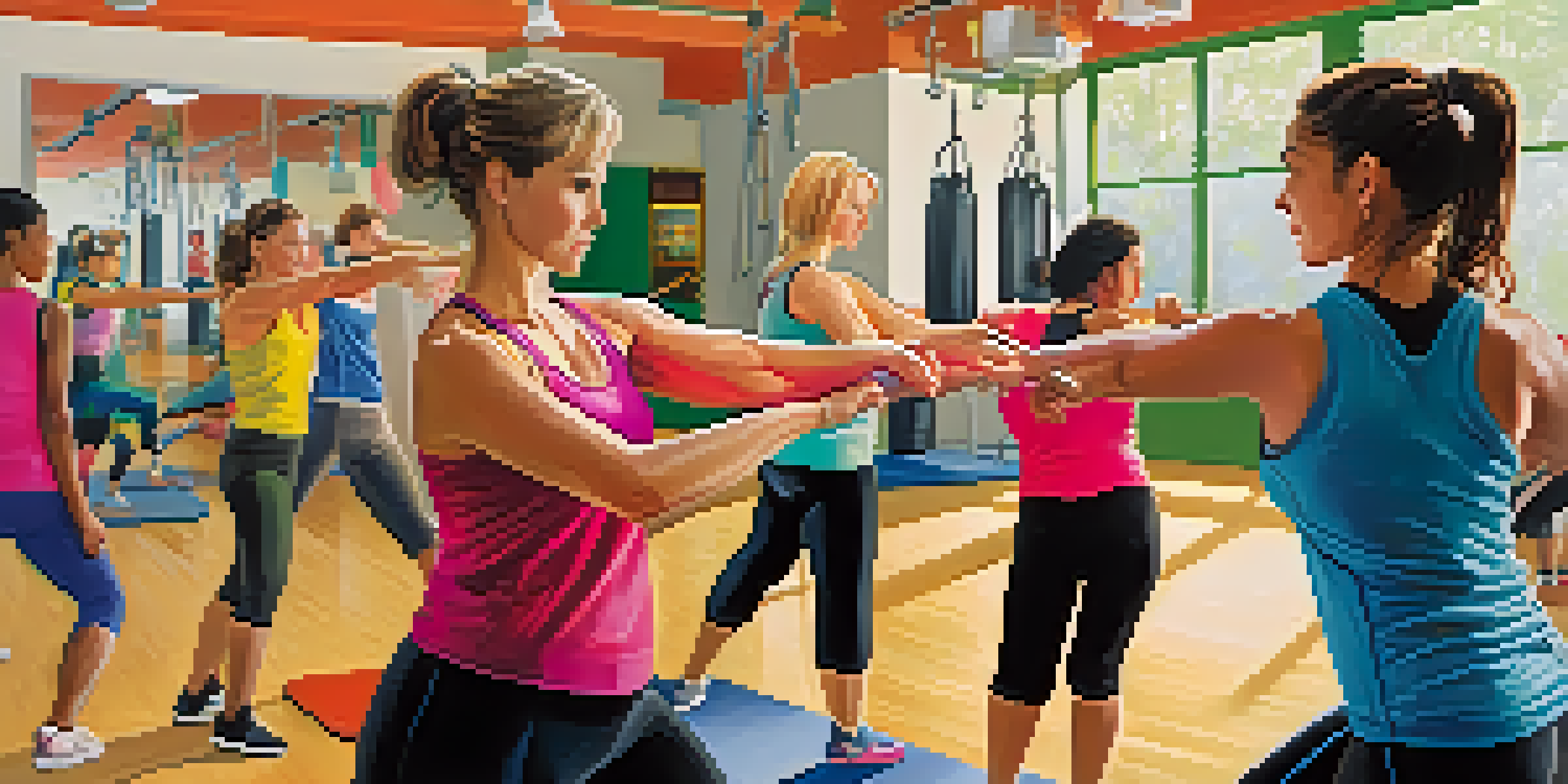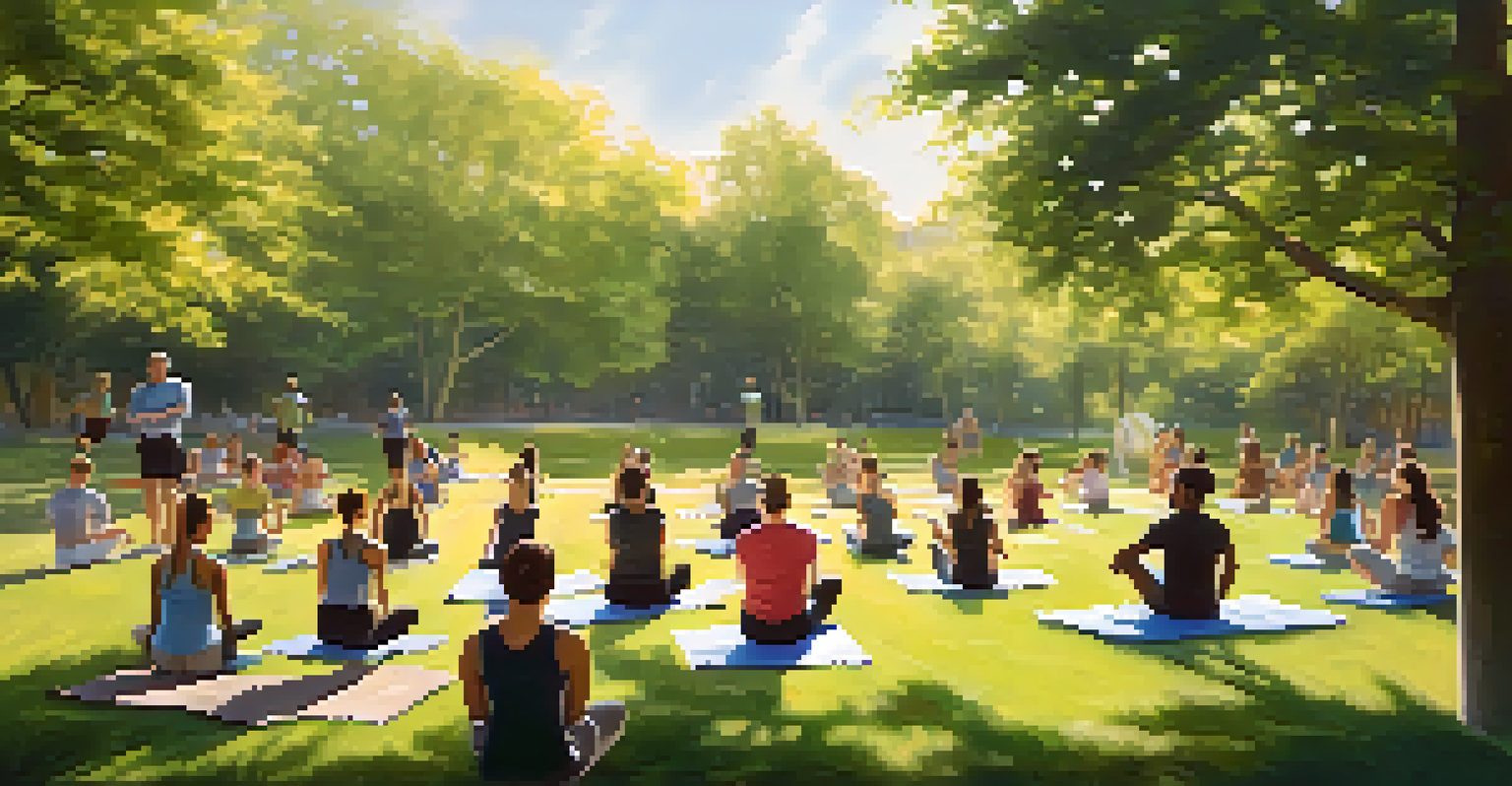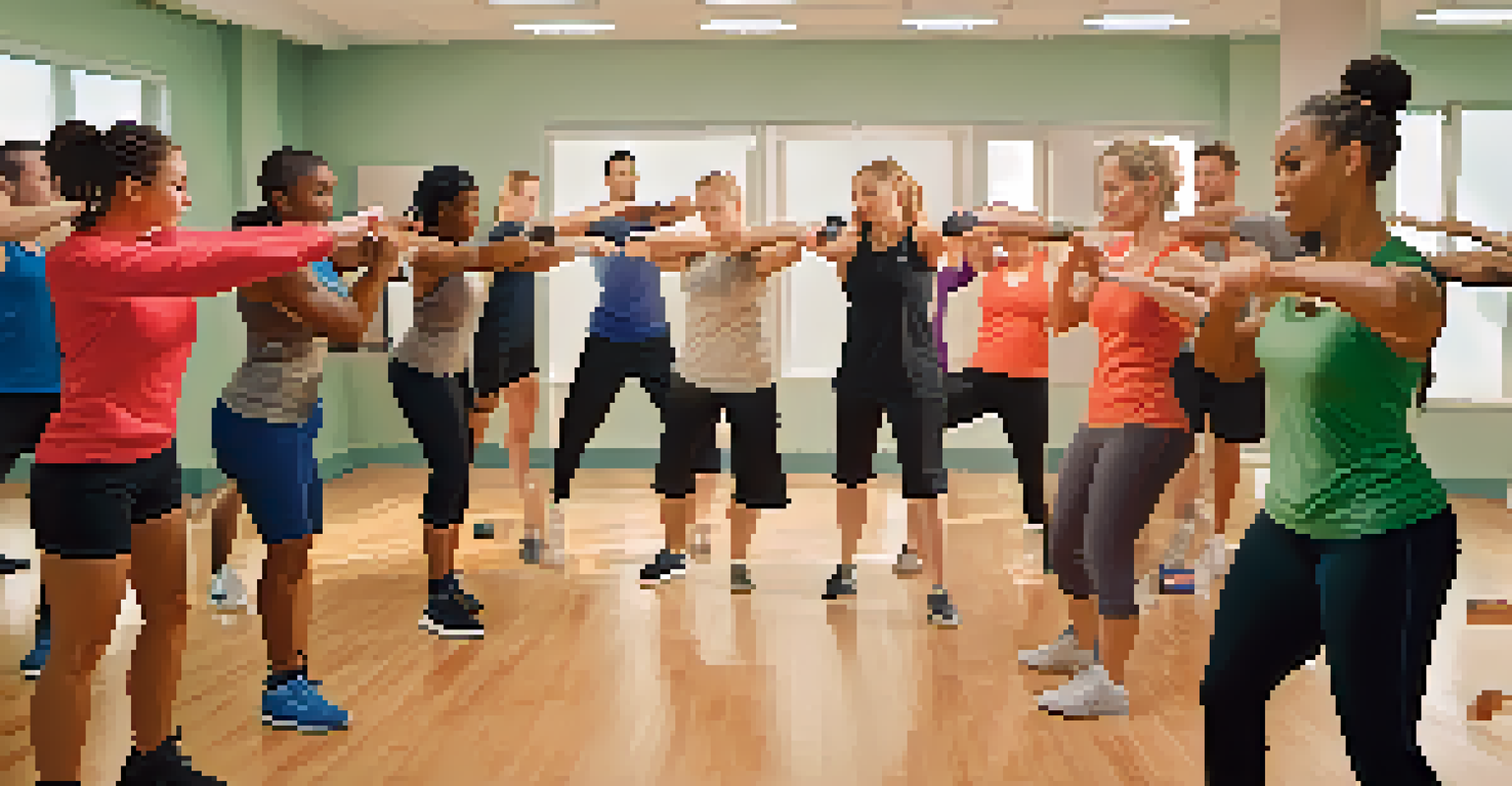Essential Self Defense Skills for Fitness Instructors

Understanding the Importance of Self Defense for Instructors
As a fitness instructor, your primary focus is on helping others achieve their health goals. However, ensuring your own safety is just as crucial. Self-defense skills empower you to handle unexpected situations, fostering a safe environment for both you and your clients.
Self-defense is not just a physical act; it's a mindset that empowers individuals to act confidently in the face of danger.
Consider the reality of working in various settings, from gyms to outdoor classes. These diverse environments can pose unique challenges, making self-defense knowledge a valuable asset. By equipping yourself with these skills, you enhance your ability to respond effectively to any threats.
Moreover, showcasing self-defense techniques can inspire confidence in your clients. When they see you prioritize safety, it reinforces their trust in your expertise, creating a more secure and positive atmosphere during workouts.
Basic Awareness: The First Line of Defense
Awareness is often overlooked but is the cornerstone of self-defense. Being mindful of your surroundings allows you to identify potential threats before they escalate. Simple actions like scanning the room or noticing unusual behavior can make a significant difference.

Imagine walking into a gym and immediately noticing an unfamiliar person lingering too long. By being aware, you can choose to engage with them, alert staff, or even reposition yourself to a safer area. This proactive approach can deter potential confrontations.
Empowerment Through Self-Defense
Self-defense skills not only enhance your safety as a fitness instructor but also inspire confidence in your clients.
Teaching your clients about situational awareness can also empower them. By incorporating this concept into your classes, you create a culture of safety that extends beyond physical fitness. It’s about fostering a mindset that prioritizes personal safety in everyday situations.
Verbal De-Escalation Techniques to Reduce Conflict
Sometimes, the best way to handle a tense situation is through words. Verbal de-escalation techniques can diffuse conflicts before they turn physical. This involves using calm, assertive language to communicate and set boundaries effectively.
The best defense is a good offense, and that starts with being aware of your surroundings.
For instance, if someone is behaving aggressively in your class, addressing them directly but calmly can often help. Phrases like, 'Let’s take a moment to breathe and reset,' can redirect their energy without escalating the situation further.
Practicing these techniques not only benefits you but also models conflict resolution for your clients. It creates a more supportive environment where everyone feels respected, ultimately enhancing the overall experience in your classes.
Essential Physical Techniques for Self Defense
While awareness and communication are vital, having basic physical self-defense techniques in your toolkit is crucial. Techniques like blocking, striking, and escaping can help you protect yourself if a situation escalates. Simple moves can be effective without requiring extensive training.
For example, learning how to break free from a wrist grab can be empowering. Practicing these techniques regularly ensures that they become second nature, providing you with confidence in potential situations. Plus, they can be easily demonstrated in your fitness classes, promoting self-defense education.
Importance of Situational Awareness
Being aware of your surroundings helps identify potential threats early, promoting a proactive approach to safety.
Integrating physical techniques into your fitness regime not only enhances your safety but also adds variety to your classes. Clients will appreciate the opportunity to learn something new while getting fit, making your sessions even more engaging.
Developing a Self Defense Mindset
A self-defense mindset is about more than just physical skills; it’s about mental preparedness. This involves understanding your instincts and trusting them when something feels off. Cultivating this mindset can help you react swiftly and effectively when needed.
Consider role-playing scenarios with fellow instructors or friends. By simulating various situations, you can better prepare yourself mentally and emotionally. This practice can help diminish fear and increase your confidence in handling real-life threats.
Encouraging your clients to adopt a similar mindset can build a community of awareness and self-confidence. When everyone values safety, it transforms the atmosphere into one where individuals feel empowered to speak up and take care of one another.
Legal Considerations in Self Defense Situations
Understanding the legal implications of self-defense is crucial for fitness instructors. Each jurisdiction has specific laws that dictate when and how self-defense can be applied. Familiarizing yourself with these regulations is essential to avoid potential legal pitfalls.
For example, knowing the difference between reasonable force and excessive force can be a game-changer. In many places, you are only allowed to use enough force to escape a threat. Being informed can help you make better decisions in high-pressure situations.
Fostering a Safety Culture
Creating a culture of safety in your fitness classes encourages open communication and shared responsibility among clients.
Additionally, teaching your clients about legal considerations can enhance their understanding of self-defense. This knowledge empowers them to act appropriately and responsibly, reinforcing the overall safety culture in your fitness community.
Ongoing Training and Education for Self Defense Skills
Self-defense is not a one-and-done skill; it requires ongoing training and practice. Regular workshops or classes can help you stay sharp and informed about the latest techniques and strategies. Investing in your education can significantly enhance your ability to protect yourself and others.
Consider partnering with local self-defense experts to offer seminars for your clients. This not only boosts your credibility but also provides your community with valuable resources. Everyone benefits when instructors and clients are well-versed in self-defense.

Moreover, continued education fosters a culture of safety within your fitness environment. When clients see that you prioritize knowledge and skills, they’re more likely to engage and value the importance of self-defense training in their lives.
Creating a Safety Culture in Your Fitness Classes
Building a safety culture within your fitness classes is essential. This involves establishing clear protocols for emergencies and encouraging open communication about safety concerns. When everyone feels responsible for safety, it creates a supportive environment.
Start by discussing safety protocols at the beginning of your classes. Encourage clients to voice their concerns and share ideas on improving safety measures. This collaborative approach not only enhances trust but also empowers clients to take an active role in their safety.
Ultimately, when you prioritize safety, your clients will feel more secure and engaged. A strong safety culture not only protects individuals but also enriches the overall experience in your fitness community, making it a welcoming space for everyone.